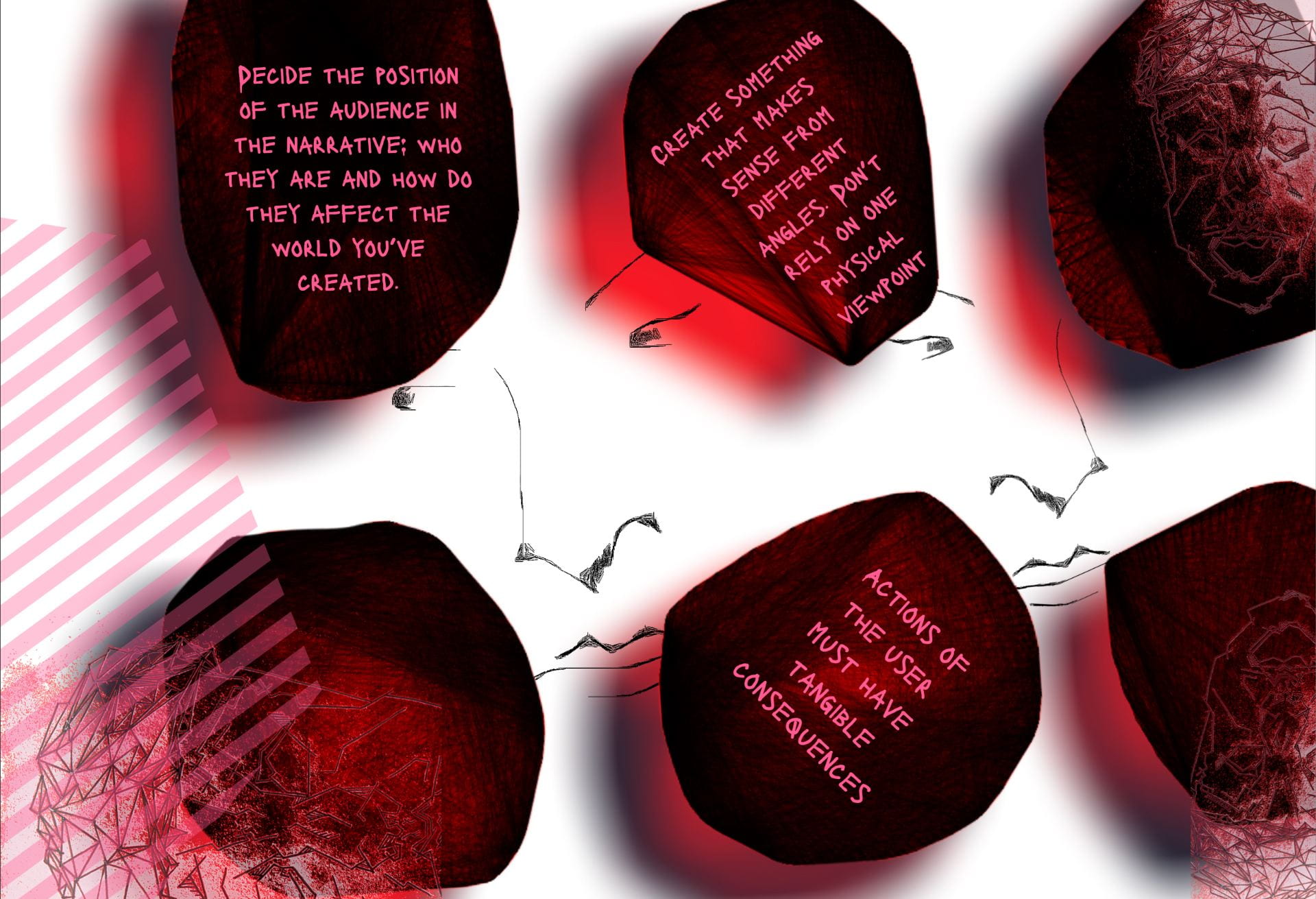We believe that there is an opportunity to innovate the production and creative process and of narrative films for VR/360°. By co-opting concepts and techniques from other artistic storytelling practices as well as evolving those that already exist in VR, we are developing a toolbox of grammar and theories with which practitioners can create narrative VR films. We are testing our findings by adapting the Orpheus myth into an episodic Virtual Reality film which highlights our main toolbox learnings.
Team
Fintan Kealy – Music with Innovation
Ellen Purse – Film with Innovation
Inspiration
Some headway has been made in populating VR with new media, however film lags behind gaming in popularity. Within the film genre of this medium documentary and travel genre are far more successful than drama film. Contrary to this, in traditional cinema drama film thrives and in streaming services it dominates the market. A defining issue of VR/360° cinema for directors learned in traditional film is the lack of the traditional narrative tools of the medium (e.g. depth of field, framing, cuts). VR/360° is a new medium and so requires new narrative tools. This inspired us to find out what grammar is in development and suggest a new toolbox of sorts for VR filmmakers.
Process
Our research mainly took the form of collating qualitative data about storytelling. We did this by conducting 1-on-1 interviews with artists from various creative practices about the techniques they use to achieve immersion. We also did desk research to further our knowledge of how immersion is achieved in different art forms. Using our collated data, we made a prototype episodic VR film based on the Orpheus myth and conducted interviews to corroborate our decisions on what VR grammar should be. By collating our corroborated grammar, we developed a toolbox for VR narrative film creation: our final demonstrator
Desirability/viability
There is a gap in the market for narrative content for VR film as demonstrated by the disparity between the success of narrative in the film industry and the VR industry. Currently VR is dominated by the gaming industry. By creating a toolbox that filmmakers can use to create VR content we hope that we can change the way filmmakers view their medium and empower them to create high quality narrative VR film.
Impact
By projects end, we will have created a grammar toolbox which will enable filmmakers to transition from traditional cinema to VR narrative filmmaking. We think that this will lead to an influx of high-quality VR narrative film created by filmmakers who can use our toolbox to tangibly realise their ideas in VR. This would lead to a growth in the VR film sector due to an increase in appeal to non-gamers who previously didn’t engage in the industry
